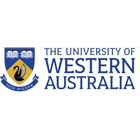Bachelor of Agricultural Science
- Home
- Courses
- The University of Western Australia (UWA)
- Bachelor of Agricultural Science
Bachelor of Agricultural Science
The Bachelor of Agricultural Science prepares you for agricultural systems of the future, as it integrates the rapidly developing field of AgTech with key agricultural science subjects. You will develop skills in digital agriculture, agricultural economics, soil science, and crop and livestock production. You will learn to integrate agricultural systems…
Categories
COURSE DESCRIPTION
The Bachelor of Agricultural Science prepares you for agricultural systems of the future, as it integrates the rapidly developing field of AgTech with key agricultural science subjects. You will develop skills in digital agriculture, agricultural economics, soil science, and crop and livestock production. You will learn to integrate agricultural systems with new digital technologies, for improved farm efficiency and productivity.
Why study Agricultural Science at UWA?
UWA is ranked 1st in Australia and 22nd in the world for Agricultural Sciences (ARWU 2023)
By taking the Bachelor of Agricultural Science you’ll gain specialised advanced training in the field of agricultural science to set you on the path to your dream career
The specific skills and knowledge developed and demonstrated by graduates are highly valued by employers and will make you highly competitive in the job market
The Bachelor of Agricultural Science prepares you to understand and influence future agricultural systems, through the integration of the rapidly developing field of AgTech with key agricultural science subjects. You will develop skills in digital agriculture, agricultural economics, soil science, and crop and livestock production, and learn to integrate agricultural systems with new digital technologies, for improved farm efficiency and productivity.
Career opportunities
Graduates will thrive in:
Agricultural consultant
Agricultural scientist
AgTech (digital agriculture) Specialist
Farmer
Agribusiness
Graduates may work as:
Agricultural consultant
Researcher
AgTech professional
Agricultural Scientist
Farmer
Further study
On completion of a Bachelor of Agricultural Science there is opportunity for further study with the Master of Agricultural Science or Master of Agriculture Economics, specialising in Agribusiness
REQUIREMENTS
Entry requirements may vary from country to country. Students are required to complete an international academic qualification equivalent to Australian High School (or equivalent).
English language requirements:
IELTS (academic): Overall minimum score of 6.5, no band lower than 6.0
TOEFL Internet-based TOEFL (iBT): an overall score of 82 or above with a minimum score of 22 in writing, 18 in reading, 20 in speaking and 20 in listening
Pearsons Test of English (PTE) (academic): An overall score of 64 with a minimum score of 59 in the speaking and writing sections, and no less than 54 in the other sections
EDUCATIONAL INSTITUTION
The University of Western Australia (UWA) is a proud member of the Group of Eight and is the only university in Western Australia to be ranked in the world top 100 universities (QS World University Rankings 2023).UWA’s main campus is located in Perth, Western Australia and is home to more than 23,000 students. Perth is Australia’s fourth-largest city with over two million people from a variety of cultures worldwide, a strong economy and vibrant lifestyle. Perth is one of the country’s most affordable cities, the closest major Australian city to Asia, and in the same time zone as most of Asia.
The University of Western Australia (UWA) is a proud member of the Group of Eight and is the only university in Western Australia to be ranked in the world top 100 universities (QS World University Rankings 2023).
UWA’s main campus is located in Perth, Western Australia and is home to more than 23,000 students. Perth is Australia’s fourth-largest city with over two million people from a variety of cultures worldwide, a strong economy and vibrant lifestyle. Perth is one of the country’s most affordable cities, the closest major Australian city to Asia, and in the same time zone as most of Asia.




